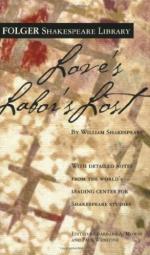|
This section contains 4,982 words (approx. 17 pages at 300 words per page) |

|
SOURCE: Wray, Ramona. “Nostalgia for Navarre: The Melancholic Metacinema of Kenneth Branagh's Love's Labour's Lost.” Literature/Film Quarterly 30, no. 3 (2002): 171-78.
In the following essay, Wray analyzes the mechanisms of nostalgia utilized in Kenneth Branagh's faux prewar era filmic interpretation of Love's Labour's Lost.
With Love's Labour's Lost (2000), [Kenneth] Branagh's narrative image found its animating logic in a generic transformation.1 In what was by far the most radical interpretive gesture of his career, Love's Labour's Lost was mooted as reinventing one of Shakespeare's lesser-known plays as a Hollywood musical from the 1930s.2 Pre-release machinery reiterated the singularity of the metamorphosis time and time again, contributing to the forcefully generic coherence of the film's intertextual relay. In the newly diverse context of Shakespearean cinematic appropriation, the potential merging of the drama and a musical in one of the least known plays appeared viable. When Harvey Weinstein came on board for...
|
This section contains 4,982 words (approx. 17 pages at 300 words per page) |

|


